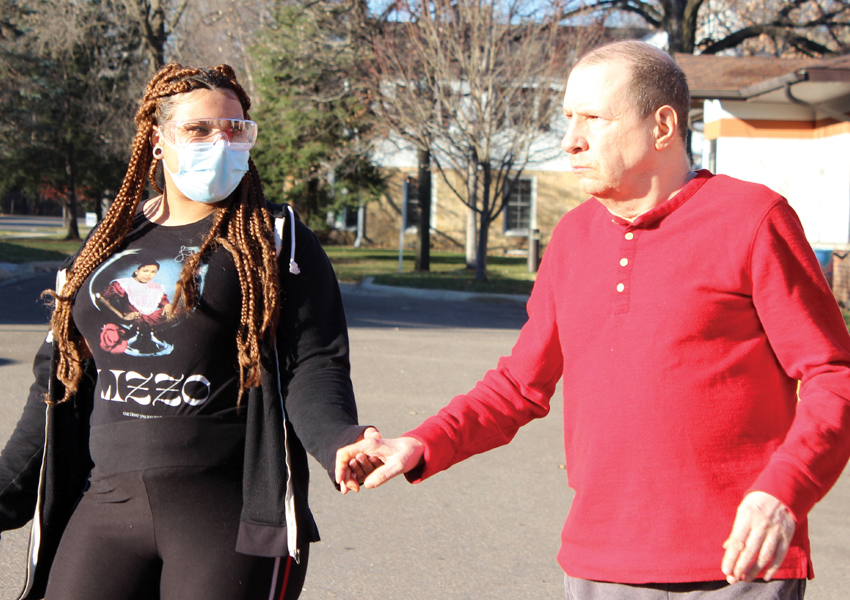Gratitude.
Unadulterated thankfulness that I don’t do this work alone.
Navigating the COVID-19 landscape, often in small circles or alone, has made it clearer that we need each other: for social purposes, for mental health purposes, for emotional support, for recreation. We are social animals. Isolation is chafing.
If you’re supporting someone with an intellectual or developmental disability, I hope you’re not doing it alone. Just the physical needs can be overwhelming. And when that person is maturing, and learning to make his/her own choices, it can be exhausting to both keep the person safe and allow them to learn by trying. How much support is enough and not too much? What risks are reasonable? What would I do if the person didn’t have a disability? The considerations can seem endless. And then, just when you think you’ve got a handle on it, the person changes their preference.
Living and working in community is also messy. Our current political conditions are clear evidence of this. We don’t all have one mind. We have different values. We bring different knowledge, experience and understanding of issues and situations.
Disability services are a great example of this. As a “movement”, we’re challenged to be of one mind. For example, often the idea of service cost is a rationale for people living in the community. While it MAY be less expensive for some people to live in the community than in congregate care, this is not universally true. We have to be careful about that message.
These nuances create issues, particularly for people with significant support needs. It’s difficult to craft person-centered policies because that tends to make them less person-centered. Policies address systems and group dynamics. So, you can adopt a policy to be person-centered, and then, generally, what occurs next is about each individual. Which means that the answers, generally, will be different for every person. Can that happen in congregate care? Yes. It means a commitment from everyone involved, including government, licensing agencies, the agency itself and the person and his/her team to focus on solutions for that person. It takes a lot of work and negotiation, creativity and innovation to operate that way. And it means that we push against congregate, policy solutions.
Think about it: people live together and still maintain some level of autonomy. Families do this all the time. So do college students who share housing spaces. The key is in understanding that we need a range of options and that the solutions fit the person, and that funding that accompanies those options is adequate to maintain the services that are necessary to support each person appropriately. To that end we ask you to advocate for people with developmental disabilities by going to our Advocate page. There, you can send a letter to your elected officials with a few clicks.
All of this is a long-winded way of saying: Engage. Even if it’s complicated and messy. Because that’s what community is about: working with each other to create solutions for all of us.
Former Senator David Durenberger said it this way: “It’s a matter of resolving unresolved wrongs…. It’s a matter of doing right by a constituency and a country.”
Please add your voice, provide financial support, volunteer, be a friend. Now more than ever, we need you all.
